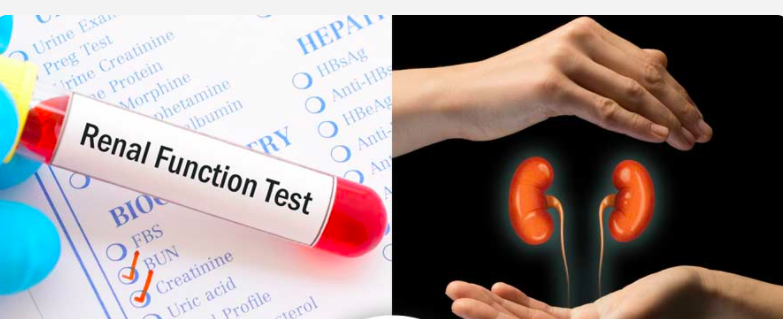
Kidney Function Tests: Know The Types, How It Is Done And What To Expect
Kidney function tests are a group of lab analyses, such as urine analysis, blood urea nitrogen (BUN), serum creatinine tests, among others, carried out to examine the normal functioning of the kidneys. They are very useful in determining the standard operations of the renal tissues, as well as in detecting any abnormalities or health anomalies, such as acute/chronic kidney disease, polycystic kidney disease, diabetic nephropathy, kidney failure, glomerulonephritis.
The Kidneys And Their Functions:
The kidneys are a pair of bean-shaped organs, with one each situated to the right and left of the spine, underneath the ribs and at the rear end of the abdomen. Measuring approximately 4 to 5 inches in length, the kidneys perform numerous vital tasks in the system, foremost among them being the filtration of blood by eliminating wastes present in the system. They flush out excess water, liquid substances, to maintain normal fluid levels in the body.
The kidneys also carry out the key role of removing acids formed by the bodily cells and tissues, to preserve electrolyte i.e. salts, water and mineral balance of calcium, phosphorous, potassium, sodium in the system. Sustaining a healthy fluid and electrolyte balance in the body is crucial for the improved strength and physical activity of the nerves, muscles. Moreover, the kidneys are actively involved in the synthesis of healthy red blood cells, essential nutrients like vitamin D for fortified bones, besides hormones to prevent fluctuations in blood pressure.
Also Read: Calcium: Functions, Food Sources, Supplements, Deficiencies And Toxicity
It is hence of utmost importance to routinely monitor the kidneys and identify any defects in their functions promptly, to ensure accurate diagnosis and timely treatment of the renal condition. Furthermore, it is advised to immediately report any discomforting symptoms associated with kidney operations, that are experienced by a person, to the doctor. These consist of pain or difficulty in urinating i.e. dysuria, decreased or increased urge to urinate, discharge of blood or coloured fluids in urine, swollen hands, feet from the accumulation of fluids i.e. oedema, fatigue, nausea, vomiting, irregular heartbeats, breathing distress. This is because these signs usually indicate kidney complications and hence can be effectively treated if reported to the physician right away.
Also Read: Dysuria: Causes, Symptoms And Treatment
Browse through this article, that provides comprehensive information on the different types of kidneys function tests.
Types Of Kidney Function Tests:
Kidney function tests entail collecting urine or blood samples from the patient and assessing them for the levels of various fluids and proteins, which are biomarkers for healthy or diseased kidney status.
Blood Tests:
Serum Creatinine:
Creatinine is synthesized and flows in the blood as a result of muscle movements and eliminated from the body by the kidneys. The normal levels for women are 0.6 – 1.1 mg/dL and for men are 0.7 – 1.3 mg/dL. Higher than normal levels of serum creatinine imply that the kidneys are not functioning optimally and could signify renal illness.
Serum Uric Acid:
When the food ingested contains purines, upon digestion, these release uric acid into the bloodstream, which is flushed out by the kidneys. Normal serum uric acid levels are 2.4 – 6.0 mg/dL in women and 3.4 – 7.0 mg/dL in men. Higher than normal serum uric acid levels signify gout or cancer, while lower than normal levels imply kidney disease or liver disorders.
Total Protein:
Albumin and globulin are two critical proteins necessary for healthy blood vessels and immunity. The total protein test measures the levels of these proteins in the blood. Usually, the total protein count in blood is in the range of 6 – 8.3 g/dL in healthy individuals. Very low levels of total protein signify kidney problems.
Urine Tests:
The urine test is a straightforward procedure wherein the person is instructed to cleanse their body prior to submitting their urine sample, to avoid contamination by infectious microbes that may be present in the outer opening of the urethra. They discharge their urine into a clean container provided by the clinic/hospital, which is then sealed tightly with a lid, marked with their name/ID and given to the doctor for medical examination of kidney status.
Urine Analysis:
Urine analysis or urinalysis is the primary urine test performed to gauge the functioning of the kidneys. This involves a visual exam, in which the doctor studies the colour of the urine to be clear or cloudy, microscopic exam to look for the presence of blood in urine, which indicates kidney trouble, as well as dipstick exam. In a dipstick exam, a very thin plastic stick is inserted into the urine sample, that change colours when acids, proteins or sugars are present in higher amounts than the normal range.
Blood Urea Nitrogen:
Urea is the final chemical substance released when proteins are broken down in the system, which is usually eliminated along with urine in healthy individuals. Blood Urea Nitrogen (BUN) tests measure the amount of urea in the urine sample of the person. The normal range of BUN is 7 – 20 mg/dL, with lower levels indicating inadequate intake of proteins in the diet and higher levels signifying kidney problems, or sometimes even severe cardiac conditions or gastrointestinal bleeding.
Conclusion:
Kidneys are a pair of vital organs in the body, required for elimination of wastes, maintenance of electrolyte, fluid balance and synthesis of hormones to support normal blood pressure levels. Kidney function tests, hence, are a very valuable diagnostic tool, to assess the health condition of the kidneys, as well as to detect any renal disorders swiftly, so as to provide timely professional medical treatment and safeguard the kidneys of the person.

